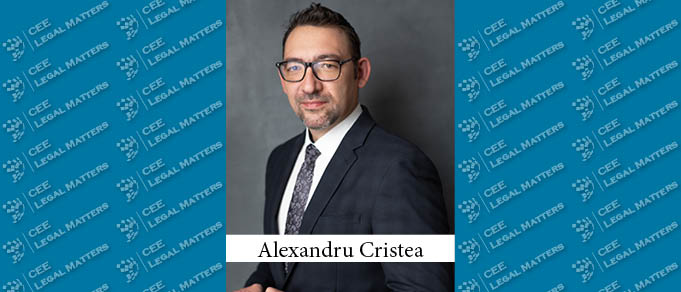Ordinance No. 11/2022 for the amendment and completion of certain normative acts, as well as for the amendment of several deadlines (“GO 11/2022”) was published In the Official Gazette No. 96/2022. This ordinance brings amendments and completions to both Law No. 227/2015 regarding the Fiscal Code (“Fiscal Code”) as well as to Law No. 207/2015 regarding the Fiscal Procedure Code (“Fiscal Procedure Code”).
The most important changes, which entered into force on February 3, 2022, are summarised herein below.
- Amendments brought to the Fiscal Code
1.1 Specific tax
Taxpayers activating in HoReCa industry are exempt from paying the specific tax in 2022 for a period of 180 days, calculated from the date this ordinance entered into force.
The ordinance also provides the mechanism for recalculating the specific tax due, by deducting this exempt period from the total of 365 days of the fiscal year (applicable by all taxpayers under Law No. 170/2016 on the specific tax for certain activities).
1.2. Equipping the vending machines with fiscal electronic cash registers
According to the provisions of GO 11/2022, the new deadline for equipping the vending machines owned by companies with electronic fiscal cash registers is December 31, 2022 (in the past, the deadline was December 31, 2021).
1.3. New rules for tax groups
GO 11/2022 introduces special rules regarding the submission of the consolidated annual profit tax return, in case at least one of the members of the tax group benefits from the facilities for recapitalisation regulated under the Government Emergency Ordinance No. 153/2020 for the establishment of fiscal measures to stimulate the maintenance/increase of equity.
More specifically, in this case, the responsible legal entity is required to file the consolidated annual return by June 25 of the following year, respectively by the 25th of the sixth month, inclusive, after the end of the amended fiscal year, if the case.
For the tax group that applies the quarterly system of declaration and payment of the corporate income tax, the communication to the responsible legal entity of the tax result for the fourth quarter by the members of the tax group is made until June 25 inclusive of the following year, respectively until 25 of the sixth month inclusive from the closing of the amended fiscal year, as the case may be.
1.4. Elimination of the obligation to file an annual profit tax return for certain transactions
Taxpayers performing transfers of assets, tax residence and/or economic activity carried out through a permanent establishment for which profit tax is due (applied to the difference between the market value of the assets transferred during a taxable period and their tax value) do not have the obligation to declare them through the annual corporate income tax return.
1.5. Elimination of the possibility to carry forward the sponsorship expenses
Under the new ordinance, corporate income taxpayers and microenterprise taxpayers are no longer able to carry forward, for the next seven years, the amounts representing sponsorships that have not been deducted from the tax due.
- Amendments brought to the Fiscal Procedure Code
2.1 E-commerce
GO 11/2022 imposes taxpayers having an electronic interface that facilitates online commercial transactions the obligation to periodically provide the tax authorities with information on the transactions carried out through it. The amendment was introduced due to the high risk of non-declaration/partial declaration of the income obtained from online commerce, this rule entering into force starting with February 3, 2022 (however, an application order issued by the tax authorities will be further required).
2.2 Inactive taxpayers
The automatic suspension of declaratory obligations for taxpayers listed as temporarily inactive or with their activity suspended is introduced. In the past, there was a specific procedure that had to be followed at the tax authorities in order to approve other terms or conditions for the submission of tax returns.
2.3 Classic payment schedule
This ordinance also grants the possibility for debtors in insolvency proceedings to apply for a rescheduling payment schedule, provided that they end the insolvency proceedings until the decision for rescheduling the payments is issued. It is also provided that the debtors who were jointly liable according to the provisions of Art. 25 and Art. 26 of the Fiscal Procedure Code, may benefit from the classic payment schedule procedure.
2.4 Providing fiscal secrecy information
The new provisions allow the tax authorities to provide access to taxpayers' data considered tax secrets to other public authorities, in order to fulfil their obligations under the law. Of course, the authority that receives such tax information is obliged to keep the information received secret.
2.5 Anticipated individual tax solutions
The Ministry of Finance is responsible for resolving requests for the settlement of a future tax situation. Thus, the anticipated individual fiscal solutions, as well as the rejection of the request for their issuance are approved by order of the Ministry of Finance. The term for solving the request for issuing the individual fiscal solution is extended from 3 to 6 months.
The anticipated individual tax solution in pending on the date of entry into force of GO 11/2022, will be resolved by the Ministry of Finance.
2.6 Submission of documents by taxpayers and their identification in the electronic environment
The obligation to send the documents by electronic means of communication to the central fiscal body is established, respectively by enrolling in the electronic communication system developed by the Ministry of Finance /NAFA.
If the taxpayers do not fulfil their obligation to send documents by electronic means of communication, and they are submitted to National Agency for Fiscal Administration in letter format, the documents will not be considered, and the tax authority will notify taxpayers to communicate them by electronic means of communication.
By Alexandru Cristea, Tax Partner, Tuca Zbarcea & Asociatii


